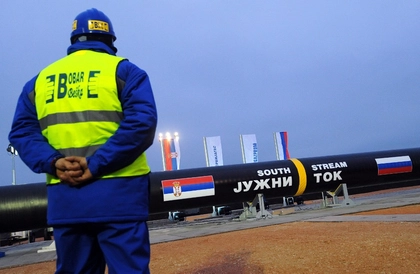President Volodymyr Zelensky has not signed the tax bill aiming to provide $1.3 billion more in tax revenues and mobilize another $3.1 billion in 2025, in a delay might jeopardize billion-dollar revenues needed for defense efforts, according to the Verkhovna Rada website.
The delayed revenue now puts at risk funds to be allocated for ongoing defense efforts, including paying salaries to military personnel, and purchasing weapons, ammunition, etc.
JOIN US ON TELEGRAM
Follow our coverage of the war on the @Kyivpost_official.
More than Hr.1 trillion ($22.2 million) will be allocated to pay the military salaries in 2025, according to Forbes Ukraine estimates – that would have been the majority of Ukraine’s state budget before Russia’s full-scale invasion.
Ukraine’s lawmakers planned the signing to happen since new tax revenues are already included in the 2025 Ukraine’s state budget, according to the president's party lawmaker Danylo Hetmantsev Op-Ed in Ukrainian media.
The final version of the state budget should be ready for a vote in the Verkhovna Rada before Dec. 1.
The president has 15 days to study the draft law and sign the document for it to enter into force, or use the veto and send it to the Verkhovna Rada for revision, according to Article 94 of the Constitution of Ukraine.
The deadline to sign passed on Oct. 30 – yet Zelenskyy has not signed the bill into law yet. The bill (11416d) was approved by Ukraine’s lawmakers on Oct. 10 and arrived at the president’s office on Oct. 15.

Medical Reform: Will Ukrainian Scientific Institutions be Converted into Hospitals?
Kyiv Post sent the president’s office a request to comment on the issue but had not received a reply at the time of publication.
Impact of Wartime Needs on Ukraine's Taxation Policy
Ukraine needs higher taxes to address both increased defense expenses and large budget deficits as Russia’s full-scale invasion of Ukraine extends into its third year. Ukraine’s defense spending increased to 36.65% of GDP in 2023 compared to 3.43% of GDP in 2021, according to SIPRI data on Statista. Meanwhile, the tax revenues remained at the same level as in 2021, according to the OpenBudget website.
Ukraine’s Ministry of Finance spent almost three months discussing the tax hikes with Ukrainian enterprises, think tank representatives and lawmakers.
Though at first the Ministry of Finance wanted to allocate Hr.140 billion ($3.5 billion) for 2024, amendments made by parliamentarians and business community members forced the ministry to decrease its goals to Hr. 58 billion ($1.3 billion) of tax revenues for 2024 and Hr.140 billion ($3 million) for 2025.
The key objective is to add extra resources for defense, including salaries for military personnel. Higher taxes are also one of the requirements that Ukraine agreed to during negotiations with the International Monetary Fund (IMF), making continued support dependent on the change.
The IMF has given $8.7 billion in loans to Ukraine since 2022 and has pledged to provide another $6.9 billion, out of a total of $15.6 billion, in the 48-month EFF arrangement with the IMF.
The IMF arrived in Ukraine to start the sixth review of the EFF program on November 11, according to the Ministry of Finance press release.
You can also highlight the text and press Ctrl + Enter






